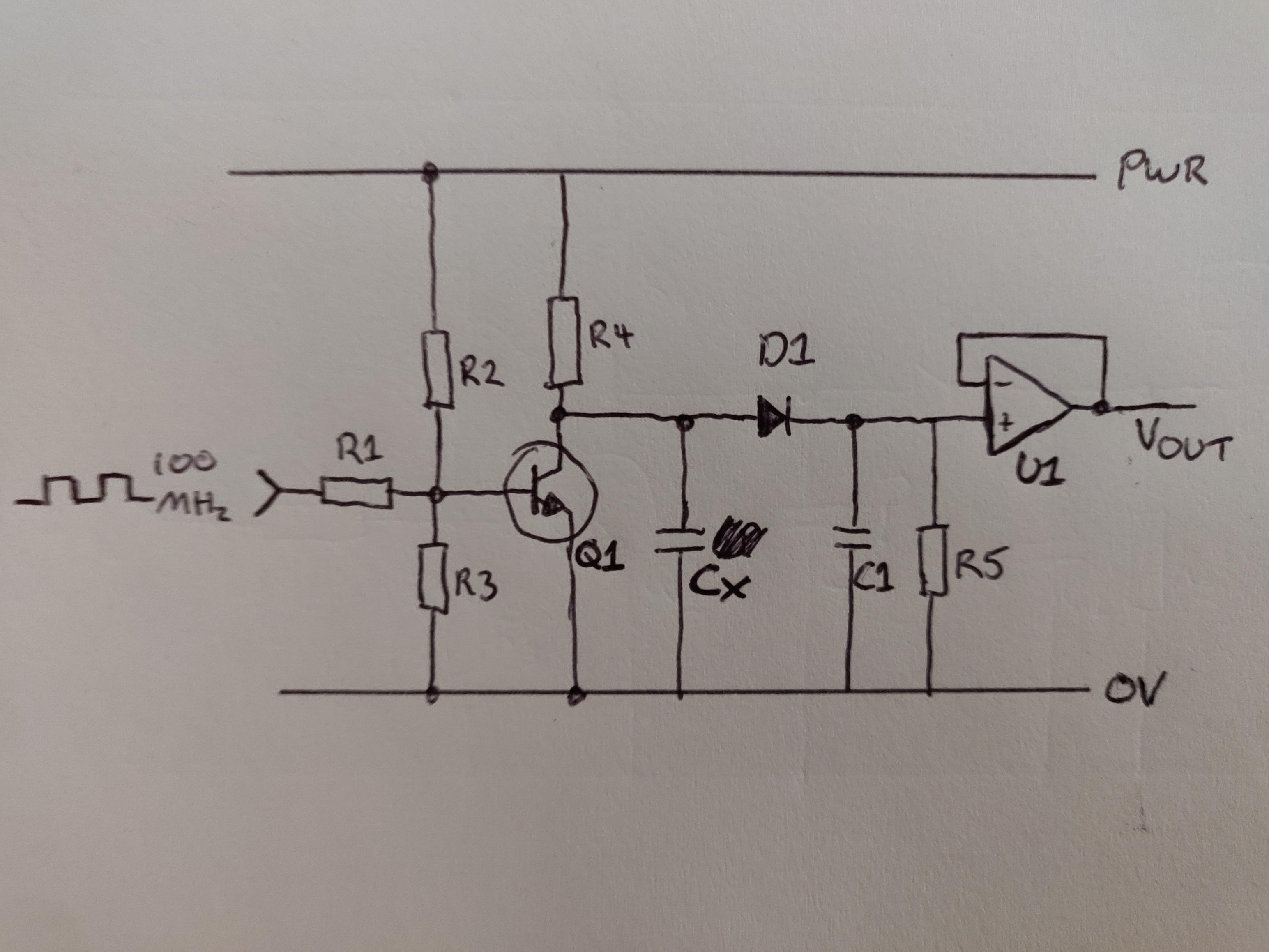100MHz soil moisture sensor
https://www.edaboard.com/showthread....us-IC-detector
The idea is to build a capacitance soil moisture probe operating at a high frequency (~100MHz). As mentioned in the thread above a high frequency is used because it minimises the effects that other compounds (minerals, salt, fertiliser, etc) have on the readings.
I'm wondering if the following circuit might work. Cx is the capacitance soil moisture probe. D1, C1, R5, U1 is a peak detector. R1, R2, R3 would be chosen so as to not turn Q1 hard off when the 100MHz input is low and not oversaturate Q1 too much when the 100MHz input is high.
100MHz is much higher than I'm used to working at. Will this circuit perform as desired at this frequency?

it is a pretty crude circuit.
Analog devices makes a number of impedance analyzer chips for use in things like capacitance meters, but they are all around 1 MHz signal frequency.
Maybe someone makes an IC that does the same at 100 MHz?
Or you could make your own?
Or maybe you take the analog devices chip, like a CN0217, UPCONVERT the test signal to 100 MHz, pass it thru the soil, then DOWNCONVERT the signal back to 1 MHz and feed it back into the CN0217 chip? You would have a VERY stable and repeatable measurement then. One benefit, you could get TWO outputs, the AMPLITUDE thru the soil, and the PHASE SHIFT thru the soil. Two signals are better than one!
Thanks for the suggestion Biff. I'll try and get my head around some impedance analysers chips.
IMHO, 100 MHz seems a tad excessive. Why so high ? To prevent double-layer stuff, I'd have thought audio frequency would suffice...
Just curious...
Hi Nik_2213, vitoa touches on this in the thread linked in my first post. Measurements taken at lower frequencies are affected by minerals in the soil whereas measurements taken at 100MHz are not. I don't want the readings to change when fertiliser is applied for example.
I would NOT assume that 100 MHz is free from such effects. Soil conductivity will of course influence a reading, and i am sure the ionic content in fertilizers will change the conductivity.
I was thinking that I could use an insulated conductor for the capacitor whether it be an insulated PCB (possibly flexible) or something else entirely.
Yes you could use insulated probes....but the probes can get dirty and wet that way. A non contacting method would be better for repeatability reasons
The plan is to permanently bury the soil moisture probe underground.
